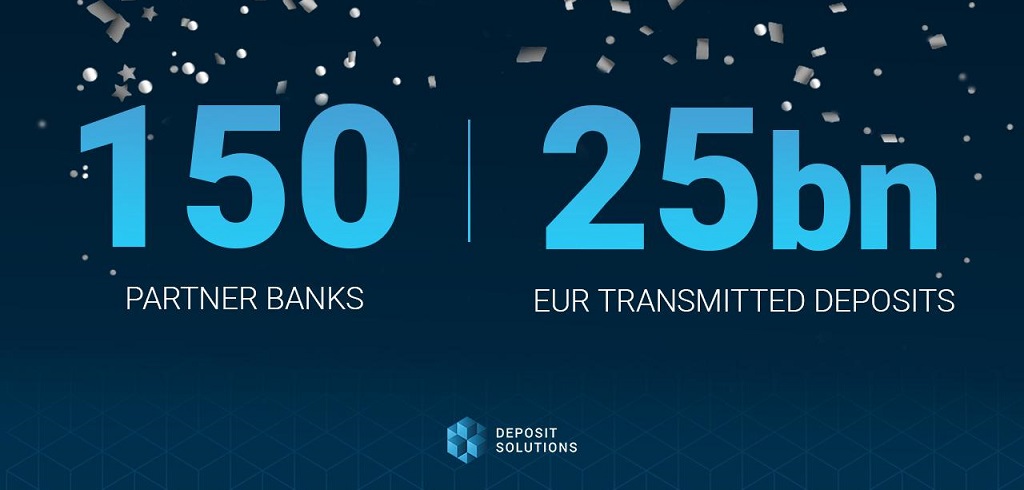
Hamburg-based FinTech company Deposit Solutions has announced that it has reached new milestones in 2020. The company’s Open Banking platform has now transmitted a total volume of 25 billion euros in savings deposits, up from 16 billion euros 12 months ago.
„The growth was driven by the strong B2B business, with banks such as Deutsche Bank, Merck Finck Privatbankiers, M.M.Warburg as well as comparison portals and other partners using the platform to offer their customers third-party savings deposit products.”, the company said.
„More and more banks want to offer their customers not only their own product range but also attractive third-party savings deposit products, without losing the entire customer relationship to an interest rate platform or a third-party bank,” says Dr. Tim Sievers, CEO and founder of Deposit Solutions. „Our platform enables this. We offer banks a new, open infrastructure for their deposits business, without entering into competition with them. The ever-increasing volumes of deposits our partners place through our platform shows they see a benefit in our solution.”
150 banks and 20 countries connected to the platform
The latest bank that has chosen to collaborate with Deposit Solutions to gain access to new customer groups and diversify its funding mix is the Austrian subsidiary of Banco do Brasil, the largest bank in South America. It is the 150th bank to partner with Deposit Solutions. Also, new on the platform is the German subsidiary of Akbank, one of the largest Turkish banks.
With the Swedish financial services provider Qliro and the Lithuanian bank EMBank partnering with Deposit Solutions to distribute savings deposit products via the company’s platform in Germany, Deposit Solutions is now operating across a total of 20 countries.
„The first banking partnership in a new country is an important milestone, as it means that we have adapted our platform to the local regulatory and operational requirements. We can then connect other partners in the country to our platform much more quickly and easily,” says Dr. Tim Sievers. „Our goal is to set a new market standard with our Open Banking platform. With 20 active countries in Europe, we are already well on the way to achieving this, and we’re planning to start with the same mission in the USA later this year.”
Deposit Solutions is a globally recognized FinTech company and the Open Banking platform for deposits. Its proprietary Open Banking technology provides an infrastructure for the global USD 50 trillion deposit market that benefits banks and savers alike.
The company operates proprietary B2C Points-of-Sale (ZINSPILOT and Savedo) that market selected deposit offers of its partners directly to savers. Founded in April 2011 by Dr. Tim Sievers, the company is headquartered in Hamburg, has additional offices in Berlin, London, Zurich and New York.
Deposit Solutions is backed by leading tech investors, such as e.ventures, Vitruvian Partners, Greycroft, FinLab, Kinnevik, Peter Thiel, Top Tier Capital Partners and Angel Investor Stefan Wiskemann as well as by Deutsche Bank AG.
Banking 4.0 – „how was the experience for you”
„So many people are coming here to Bucharest, people that I see and interact on linkedin and now I get the change to meet them in person. It was like being to the Football World Cup but this was the World Cup on linkedin in payments and open banking.”
Many more interesting quotes in the video below: